21 Dec The Future of Asset Protection is Now – by Michael Robinson, Esq.
Clark Peshkin Partner and Estate Planning Attorney Mike Robinson discusses the importance of protecting some less familiar assets, such as Personal Seat Licenses, in the latest issue of the Rochester Business Journal.
LINK: https://rbj.net/2023/12/14/the-future-of-asset-protection-is-now-viewpoint/
The Future of Asset Protection is Now – by Michael Robinson, Esq.
With a massive hole in the ground and construction well underway for a shiny new Buffalo Bills stadium, personal asset protection and estate planning may not be the first things that come to mind. However, with a modern facility and the excitement that understandably accompanies it, an unfamiliar asset is born for some of us. Welcome the personal seat license (PSL), a transferable asset that has the potential to appreciate. As such, planning to protect it is as important as other investments and possessions.
What is a PSL and how is it different from traditional ticketing?
Essentially, a PSL is the right to purchase a ticket as a revenue mechanism to help finance new stadiums. Traditionally, if you wanted to purchase a single-game or season ticket for your favorite team (we’ll assume the Bills), you would purchase an available ticket at a price set by the team. For example, let’s say the price of a Bills season ticket is $2,000; you would pay the Bills exactly that for your season ticket with the right to renew – pretty straightforward. When a team adopts a PSL model, you cannot simply purchase a ticket from the team. Instead, you must first purchase the PSL, which then gives you the right to purchase your seat. While policies regarding PSLs vary among teams, typically, when you purchase a PSL you are paying an upfront fee for the right to buy tickets for specific seats for a number of years, and you retain the right to renew your PSL purchase for those seats once your initial PSL term expires. Depending on team policy (the Bills have not yet released the formal specifics of their plan/campaign), if you own a PSL but don’t buy a season ticket for a given year, the team may revoke your PSL and sell the rights to your seats to someone else. Conversely, a PSL holder may transfer or sell their rights to another individual (ideally at a profit). PSLs have been used by pro teams since the late 1980s starting with the NBA’s Charlotte Hornets expansion franchise. They have been implemented since with varying degrees of success, but like them or not, PSLs likely are here to stay in one form or another.
What do PSLs have to do with estate planning?
Similar to a stock or other investment, PSLs are transferrable, and potentially valuable, assets. Consequently, they should be accounted for in your estate plan – will and trust. However, as with other non-traditional assets, it’s the type of asset that is easy to overlook when creating an estate plan. I have encountered situations where clients have forgotten to disclose PSL assets as we were designing their estate plan. As a result, after the owner’s death, there were family arguments and even the family’s loss of the PSL. At a minimum, you should specify in your will or trust (yes, PSLs can be assigned to a trust) who you want to receive the PSL upon your passing. If you have additional beneficiaries who you would like to receive other assets of a comparable value, your will or trust should include a mechanism for valuing the PSL. To the extent the PSL appreciates in value after your purchase, you may want to make sure the PSL receives a step up in cost basis upon your death to avoid capital gains tax if the PSL is sold after your passing. By assigning the PSL to your trust, you will ensure that your beneficiaries receive a step up in cost basis when they inherit the PSL (so that they can avoid capital gains). Additionally, if you want to protect your PSL from being lost to creditors or from having to be liquidated to pay for long term care, such as a nursing home, you will want to incorporate asset protection planning into your estate plan and make sure your PSL is included in that asset protection planning. Finally, you will want to work with an attorney who is experienced with incorporating PSLs into an estate plan to be sure that your objectives are met.
PSLs are a relatively new asset in our community, and I expect we will be hearing more about them as the new Bills stadium progresses. There are other non-traditional assets that clients often forget to consider when creating their estate plan. Copyrights and royalty agreements, cryptocurrency, rare or large collections (trading cards, wine, etc.), and endorsement agreements all are assets that can carry significant financial value, and they need to be accounted for in a comprehensive estate and asset protection plan.
Recent developments in laws and regulations also make estate planning essential even for children and young adults. For example, college athletes now have the ability to accumulate wealth through name, image, and likeness endorsement deals (NILs); and failure to plan properly for the handling of those NILs in the event of the athlete’s incapacity or death can cause significant legal and financial problems for the athlete and their family. Similarly, a new Illinois law, the first of its kind in the nation, requires the parents of child influencers featured in monetized social media videos set aside a portion of the income derived from those endeavors, and to deposit the child’s portion into a trust created for the child’s benefit. Other states are likely to follow suit, and parents who fail to create the proper trust arrangement may be liable for violating child labor laws.
When creating or reviewing your estate plan, it is essential that you work with an experienced estate planning attorney. An experienced attorney will work hard to understand your financial and family situation, ensuring that a comprehensive plan is tailored to your individual circumstances. When preparing for a meeting with your estate planning attorney, gather statements for each asset that you own as well as prepare a list of unusual circumstances and any questions that you have for the attorney. This will ensure that you walk away with peace of mind and that your attorney has the direction they need to get you started on the right foot.
Michael Robinson, Esq., is a Partner at the law firm of Clark Peshkin, with over 37 years of experience in Estate Planning and Elder Law matters.

